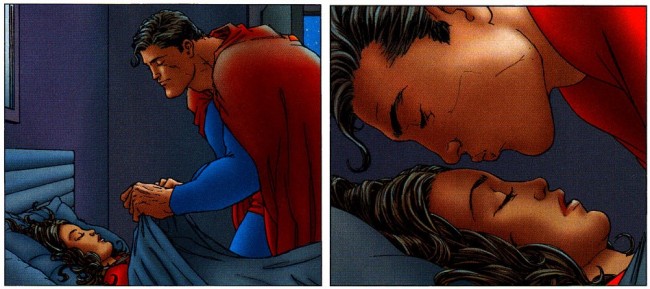
Kiss Me And I’ll Kiss You Back
April 10th, 2011 Posted by david brothersI live fairly close to a Japanese bookstore, and that gives me a chance to recklessly spend money on things I can’t read. I’ve got a few manga, a few art books, and a few magazines that had pictures I like. I was flipping through one I bought a while back, Inio Asano’s Sekai no Owari to Yoake-Mae (Before Dawn and the End of the World), and really took notice of the kiss that closes out the last story in the book. It got me thinking about kissing and comics, and trying to figure out the first kiss I saw in comics.
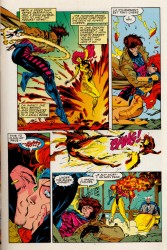
I’m pretty sure that it’s in Chris Claremont and Jim Lee’s X-Men 1. During a Danger Room sequence, Gambit steals a kiss from a robot duplicate of Jean Grey. She explodes, and Gambit’s response is, “As I always suspected… redheads, they have a dynamite kiss.” It’s part of the personality spamming Claremont often got up to, something to remind you that Gambit is a Cajun lothario with a sense of humor.
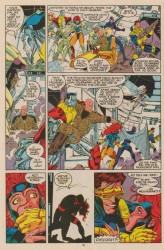
There was another kiss later in the same story. A brainwashed Cyclops steals a kiss from Jean Grey (I’m just now realizing how weird it is that it happened TWICE in the span of three issues) and asks if his kiss is as much fun as Wolverine’s, which is actually this whole weird cuckolding/male competition thing that I’m not sure I’m okay with in my old age.
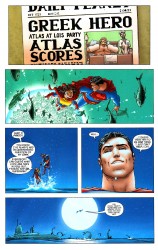
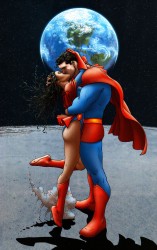
I asked Twitter about other notable comics kisses. The most common suggestion was from Grant Morrison and Frank Quitely’s All Star Superman. After gallivanting around Earth and using their superpowers all day, Superman and Lois Lane share a kiss on the moon.
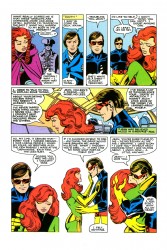
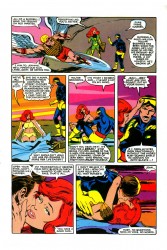
The next most common was from Chris Claremont and John Byrne’s The Dark Phoenix Saga. I flipped through and spotted a couple. I think most people thought of the kiss on the bluff, but here’s two:
The only multi-page kiss I found came from a suggestion from Jeff Lester. He suggested Gerry Conway and Ross Andru’s Amazing Spider-Man 143, which is toward the end of the golden age of ASM for me. This is one of the few kisses that lasts longer than 1 panel that I came across, and it’s good, if you’re a Spider-Fan.
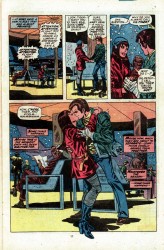
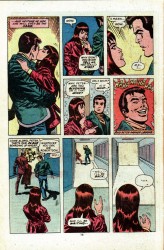
There are plenty of others. Brandon Graham’s King City had a couple gooduns, Batman and Wonder Woman in Joe Kelly and Doug Mahnke’s JLA: The Obsidian Age, and Ennis and Dillon’s Preacher
undoubtedly had a few great ones, though specific instances are escaping me right now. Azzarello and Risso’s 100 Bullets
had a great one in New Orleans.
The thing about 99% of the kisses I’ve seen in comics, with precious few exceptions, is that they all look basically the same. Look at the examples I’ve pulled. It’s usually a man, who is generally taller than the woman, in a dominant position, with one arm around the woman’s waist and maybe a hand bracing her head. The woman’s arms go around the man’s neck. It usually lasts just a panel.
The similarity got me thinking. This is a cultural thing, isn’t it? This is how people kiss. This is what it’s supposed to look like. It’s very Hollywood and screen-ready. Neither party is obscured from an observer, the man gets to lead the way, visually at least, even if the woman initiated the kiss… where’d this representation come from?
Here’s Alfred Eisenstaedt’s V-J Day in Times Square. You’ve seen it before, I guarantee. It’s a spontaneous kiss, rather than a posed one.
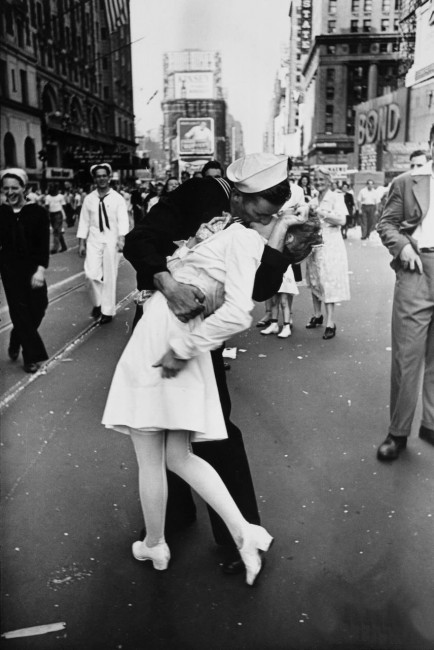
I kinda feel like this is the kiss in America, too. It’s definitive. It’s what you see at marriages, when people propose, and in movies. This has to be the genesis of that specific kiss configuration, at least pop culturally, right? Sort of like how John Woo and Chow Yun-Fat are the genesis of hard-edged heroes with twin guns, Bruce Lee is the genesis of 90% of kung fu fools in comics, Clint Eastwood is the source of Wolverine and all of his descendants, and on and on and on. V-J Day in Times Square may not have been first, but it’s got to be the biggest touchstone.
What’s interesting to me is that this type of kiss is far from the only type of kiss in real life, but it’s the most dominant in media/pop culture. It’s fairly chaste, isn’t it? There’s no groping, no grinding, none of the stuff that makes kissing so unbelievably interesting. There’s passion, but there’s no lust, for lack of a better word. It’s just a kiss. It’s romantic.
Here’s the kiss from Inio Asano’s “End of the World.” Long story short, the girl’s dating a dopey guy, but she loves him anyway. It makes her a little uncomfortable, being so content, and I sorta feel like this is their first kiss. Five pages:
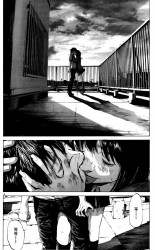
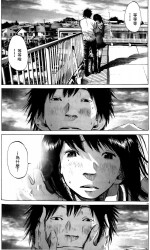
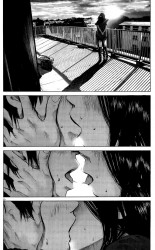
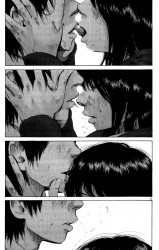
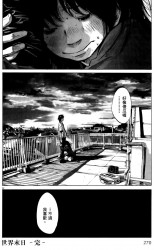
This is really interesting. There are a few major differences from the standard kiss. She’s in control throughout, it’s explicitly erotic (consider her knee on the first page), her tiptoes and subsequent collapse lend it a sense of both desperation and satisfaction, and I feel like the way both of them are blushing and sweating only add to the effect. And then there’s the tongues and the spit. This sequence is wet. It looks raw. It looks like making out. I really like the difference between page 1, panel 1, and page 3, panel 1. One’s a surprise. The other’s a genuine embrace.
You can imagine why I found this sequence so striking. I was raised on a diet of women bent backward, chaste mouth locks, and variations on a specific pose. This is dessert. Makeouts, instead of kisses. I feel like it’s more reflective of real life, too, and it’s almost definitely the best kiss I’ve seen in comics. I don’t think most porn comics even go at it like this.
(A few asides:
(-googling for info on the history of kissing, how kissing is different in various cultures, and really anything in detail on kissing got really really weird and makes me self-conscious in a way I really wasn’t expecting. Do I need to make some apologetic phone calls? In any case, tell your mom I said hello.
(-As pointed out by my man Jamaal Thomas (who should really write more, once he finishes doing things like “having several jobs”), the kiss in All-Star Superman is deflated two pages later by the overwhelmingly paternal kiss on the forehead Superman gives Lois. I’m not saying dudes shouldn’t be kissing their ladies on the forehead or anything, but in that instance? It’s a little too much like a father tucking in his daughter. Mmmmmno, thanks.
